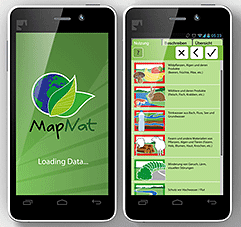Fernando Santos Martín
ESMERALDA Insider: Fernando Santos Martín on mapping and assessment ecosystems services and their relationships to human wellbeing
ESMERALDA Insider now introduces you to our partner Fernando Santos Martín . Learn more about his research within ESMERALDA, his work on Mapping and Assessment of Ecosystem Services on a national level in Spain and his general interests.
 Fernando Santos Martín is a Senior Researcher working at the Social-Ecological Systems Laboratory at the Autonomous University of Madrid. During the last seven years he has been involved in several national and international cross-disciplinary research projects and teaching activities. Since 2010 Fernando has been acting as the Scientific Coordinator of the National Ecosystem Assessment of Spain, the Focal point for Spain of the European Commission Working Group on Mapping and Assessment on Ecosystems and their Services (MAES). On an international level, he has been selected to develop regional assessments for Europe and Central Asia as a Lead Author of the Intergovernmental Panel of Biodiversity and Ecosystem Services (IPBES).
Fernando Santos Martín is a Senior Researcher working at the Social-Ecological Systems Laboratory at the Autonomous University of Madrid. During the last seven years he has been involved in several national and international cross-disciplinary research projects and teaching activities. Since 2010 Fernando has been acting as the Scientific Coordinator of the National Ecosystem Assessment of Spain, the Focal point for Spain of the European Commission Working Group on Mapping and Assessment on Ecosystems and their Services (MAES). On an international level, he has been selected to develop regional assessments for Europe and Central Asia as a Lead Author of the Intergovernmental Panel of Biodiversity and Ecosystem Services (IPBES).
Fernando on his research interests:
Fernando’s research is currently focused on the process of mapping and assessment ecosystems services and their relationships to human wellbeing from its biophysical, socio- cultural and economic dimensions. Methodologically, his work has focused on analyzing the status and trends of aquatic and terrestrial ecosystems services through different methods and spatial information and assessing their contribution to human wellbeing.
As a researcher, he is is also specifically interested in the relationships between rural and urban systems, analyzing the impact of various drivers of change (i.e. rural abandonment, economic model). Fernando looks at how these factors play in the flow of ecosystem services and analyzes the impact that certain policies have on land management and biodiversity conservation. The ultimate goal of his current work is to demonstrate the complex relationships between natural and human systems to help sectoral policies to developed instruments linking national and local conservation policies with international and European ones.
The implementation of a National Ecosystem Assessment is not a simple process and needs to take in consideration complex issues, such as: which conceptual framework should be followed, where to find the best available information; which are the best methods to achieve our objectives; how to integrate and communicate our results to different stakeholders, etc. Based on his experience as the coordinator of the Spanish National Ecosystem Assessment, he aims to help other researchers working on national level to generate robust, scientifically validated information that can help to move the debate on the conservation of ecosystems and biodiversity beyond the academic world and link it to the goals of a good life to which all actors in society aspire.
In ESMERALDA:
In ESMERALDA he is the coordinator of Work Package 3: Mapping methods, dealing with mapping and assessment of ecosystems and their services in EU member states. The overall objective for WP3 is to assess the current state of ES mapping in the EU and to develop a multi-tiered flexible ES mapping methodology to integrate the three value domains of ES (biophysical, economic and socio-cultural) at different spatial scales.
In particular, he is also responsible to lead the task of Socio-cultural methods, a particularly exciting aspect of his work, as in spite of the increase in the number of publications, socio-cultural valuation approaches have not yet formalized a common methodological framework. Designing a methodological framework able to explore ways of representing cognitive, emotional, and ethical responses to nature, alongside ways of expressing preferences, needs, and desires of people in relation to ecosystem services is very much needed. In this context, his work in ESMERALDA aims to contribute to this challenge through the review of socio-cultural valuation methods that have been frequently applied in ecosystem services literature.
 "I consider that any ecosystem assessment should combine the three value domains (biophysical, socio-cultural, and economic) to properly inform the environmental decision-making process."explains Fernando. "In particular, integrated valuation assessment should try to examine the interdependencies between ecosystem status and the values associated to different ecosystem services."
"I consider that any ecosystem assessment should combine the three value domains (biophysical, socio-cultural, and economic) to properly inform the environmental decision-making process."explains Fernando. "In particular, integrated valuation assessment should try to examine the interdependencies between ecosystem status and the values associated to different ecosystem services."
For example, an ecosystem’s capacity to supply services determines its range of potential uses by society, which influence its socio-cultural and monetary value. Socio-cultural values also have an influence on monetary value because preferences and ethical and moral motivations determine the ‘utility’ a person obtains from a particular service. These interdependencies (and the different information provided) explain why ecosystem services assessment should be based on integrated approaches.
